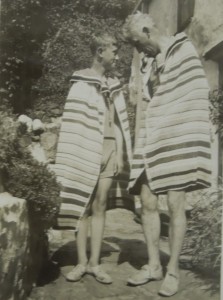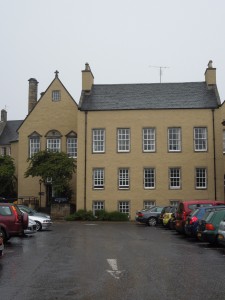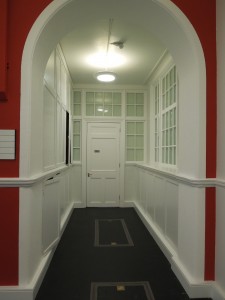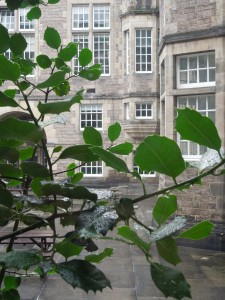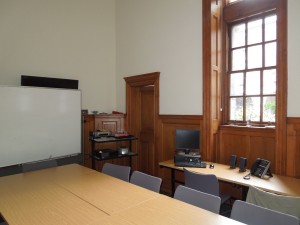It is a real privilege to catalogue an individual’s personal papers. Yes, its fascinating learning about the field they contributed to and the innovations they left behind, but there is nothing better than putting on your cardigan (a necessary implement – archive stores are chilly!) and making a new friend.
As @mandahill quoted on twitter
“Where there is a good collection of personal papers there is a greater likelihood of history remaining a humane study.” #archives
Quite. And there are many fascinating personal papers to be found in Thomson’s collection, from photographs, to letters, to artefacts, telling us about his life as well as his work. After two months of working on his papers, I really do feel like I am getting to know Thomson. And I rather like him.
But it was today, when I was lucky enough to have a tour of Moray House where Thomson was director between 1925-1951, that I really got an idea of the working environment in which he carried out his research. Myself and others involved in the project were led by former honorary Moray House archivist, Hugh Perfect.
- We started the visit in the corridor of Thomson’s office, surrounded by beautiful 1930s architecture. Like many teachers and academics in the early to mid 20th century, Thomson wore academic robes while he taught, and I could almost see him walking purposefully along the corridors around his office with his robes billowing behind him!
His office had (and still does have) a smaller office adjoining where his secretary, Marian Cooke, worked. The pair had a close working relationship – in the 11 years they worked together, they had only one skirmish which began with Thomson losing his temper, and ended with Cooke slamming the door! Thankfully, according to Cooke, this incident was a one off, and the pair thoroughly enjoyed working together. Though whether she enjoyed Thomson’s renditions of Gilbert and Sullivan is anyone’s guess!
We were also lucky enough to see Thomson’s portrait by RH Westwater, which hangs in a room now used as a meeting or conference space:
It was certainly nice to see that Thomson is still remembered by Moray House over 60 years after his retirement, and fitting one of the buildings has been named ‘Thomson’s Land’ in his memory.
In contrast, ‘Room 70’, where Thomson and his team designed the Moray House Tests, is rather unrecognisable today from the picture Thomson’s papers paint – that of a hive of quiet activity, with only the sound of the calculating machine, the rustle of paper, and the sighs of the unfortunates tasked with marking the tests punctuating the silence! The room is now used primarily for seminars, and has been refurbished in a modern style.
The tour really gave us a feel for the environment in which Thomson worked, and it also gave me more of an idea of the man himself. Hugh’s extraordinary knowledge of Moray House was fascinating, and I learned something not only about Thomson, but about the institution he became such a part of.
Hugh has written extensively about Moray House, but it occurred to me that this is unusual in most cases – the buildings which are such a part of the papers are often no longer standing, or those with the sort of knowledge that comes only from years of habitation are no longer there.
The moral of this tale? If you are working on an individual’s papers, whether in the capacity of researcher or archivist, leave the books and the archives for a day and visit their old haunts. You might well learn something!
With thanks to Hugh Perfect for his time and knowledge.
